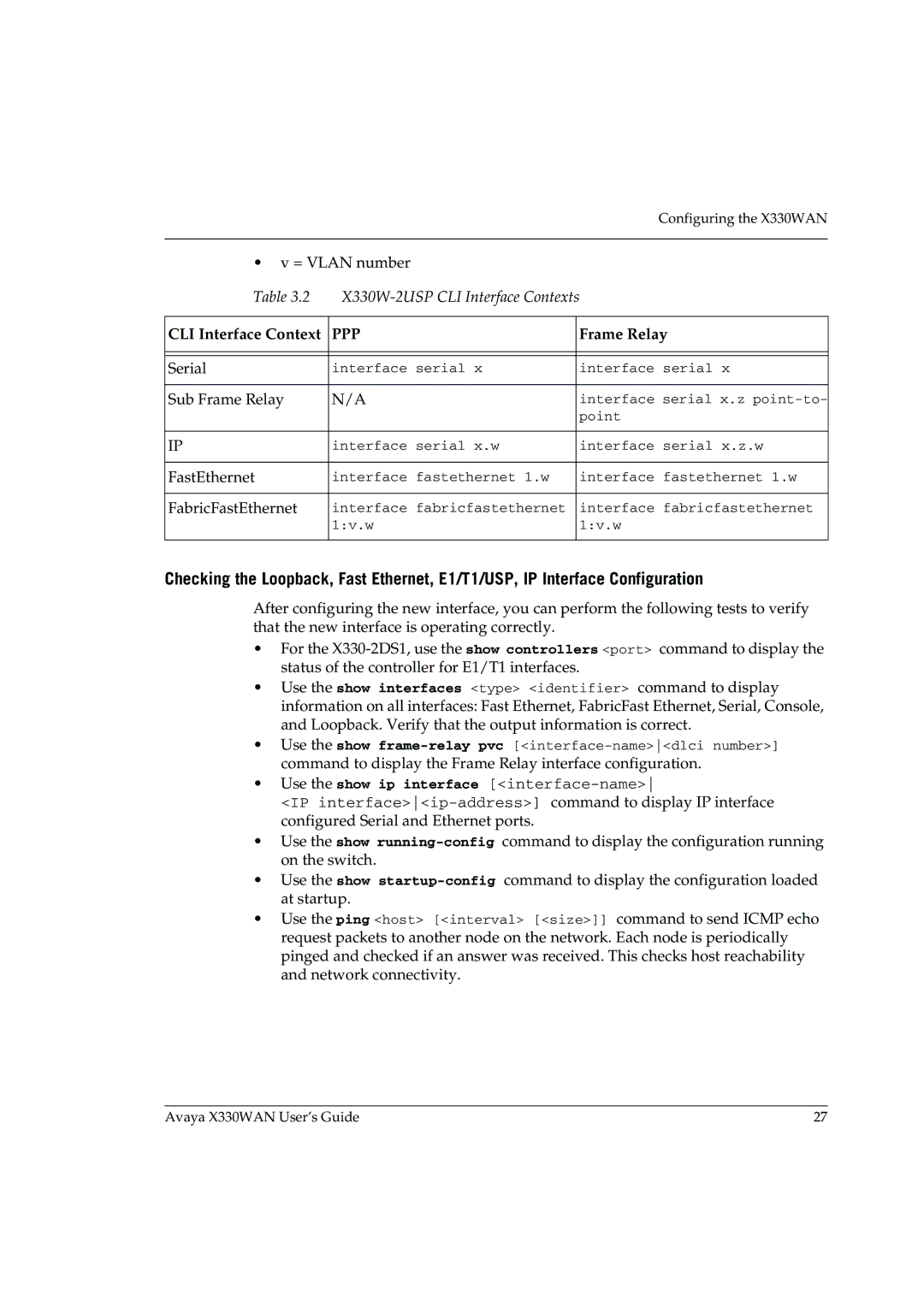
Configuring the X330WAN
•v = VLAN number
Table 3.2 | ||
|
|
|
CLI Interface Context | PPP | Frame Relay |
|
|
|
|
|
|
Serial | interface serial x | interface serial x |
|
|
|
Sub Frame Relay | N/A | interface serial x.z |
|
| point |
|
|
|
IP | interface serial x.w | interface serial x.z.w |
|
|
|
FastEthernet | interface fastethernet 1.w | interface fastethernet 1.w |
|
|
|
FabricFastEthernet | interface fabricfastethernet | interface fabricfastethernet |
| 1:v.w | 1:v.w |
|
|
|
Checking the Loopback, Fast Ethernet, E1/T1/USP, IP Interface Configuration
After configuring the new interface, you can perform the following tests to verify that the new interface is operating correctly.
•For the
•Use the show interfaces <type> <identifier> command to display information on all interfaces: Fast Ethernet, FabricFast Ethernet, Serial, Console, and Loopback. Verify that the output information is correct.
•Use the show
•Use the show ip interface [<interface-name>
<IP
•Use the show
•Use the show
•Use the ping <host> [<interval> [<size>]] command to send ICMP echo request packets to another node on the network. Each node is periodically pinged and checked if an answer was received. This checks host reachability and network connectivity.
Avaya X330WAN User’s Guide | 27 |
